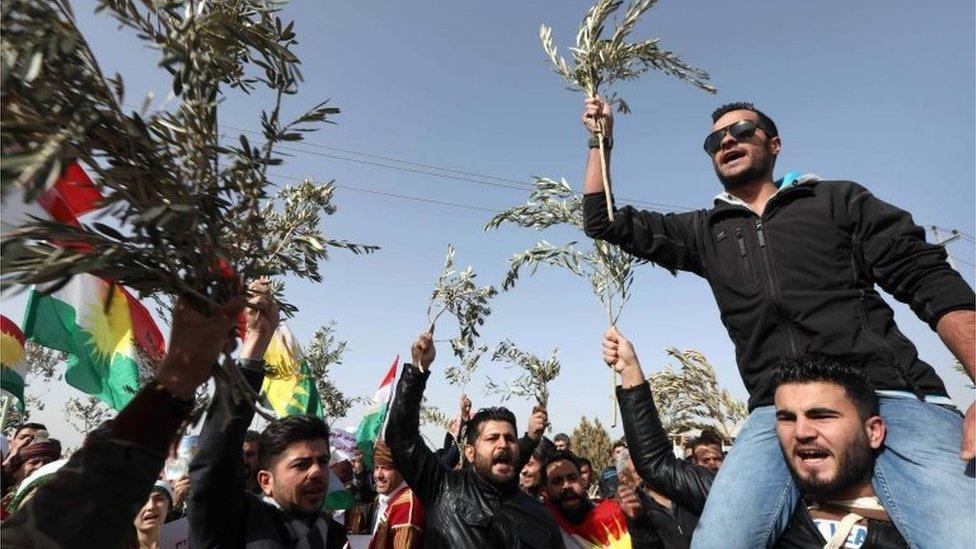Syria war: Wounded 'to be evacuated from Eastern Ghouta' - rebels
- Published
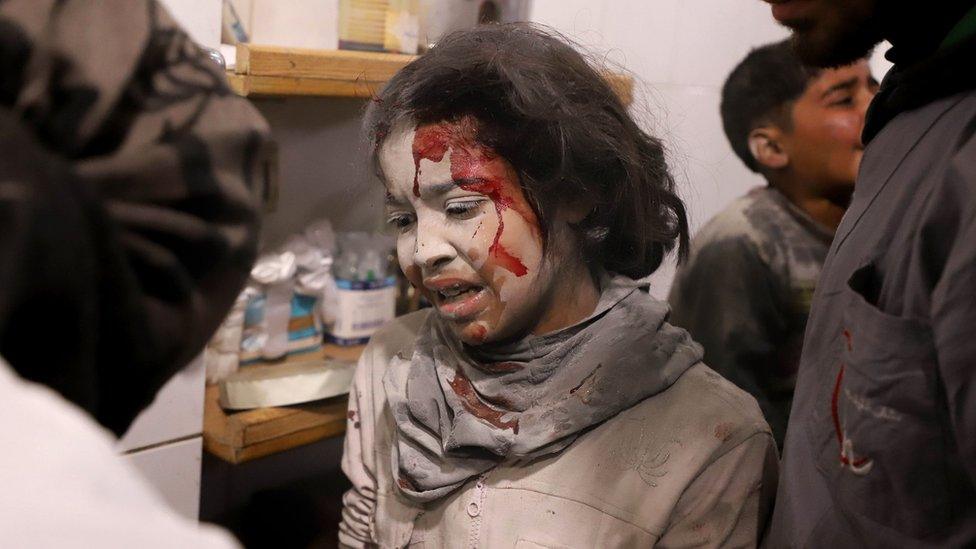
The UN says more than 1,000 critically ill and wounded people need to be evacuated
The largest rebel group in Syria's besieged Eastern Ghouta region says it has agreed with the government's key ally Russia to evacuate wounded people.
Jaysh al-Islam said the evacuations would take place in stages, but it did not say when they would begin.
There was no confirmation from Russia, but the UN said there had been talks.
More than 1,100 civilians have been killed and 4,000 wounded since the government stepped up its offensive on the Eastern Ghouta on 18 February.
Soldiers and allied militiamen have recaptured 60% of the enclave, which is just outside Damascus, the Syrian capital, and split it into three separate pockets in recent days.
The government's advances have displaced thousands of families, triggering what the opposition-run council in the major town of Douma called a "catastrophic" humanitarian situation.
It said existing basement bomb shelters were so overcrowded that some families were being forced to sleep out in the open, and that at least 70 people had been buried in a park because air strikes made it unsafe to reach the town's cemetery.
Meanwhile, the US said it had drafted a new UN Security Council resolution demanding a 30-day nationwide cessation of hostilities, accusing Russia of failing to ensure a ceasefire resolution passed two weeks ago was implemented.
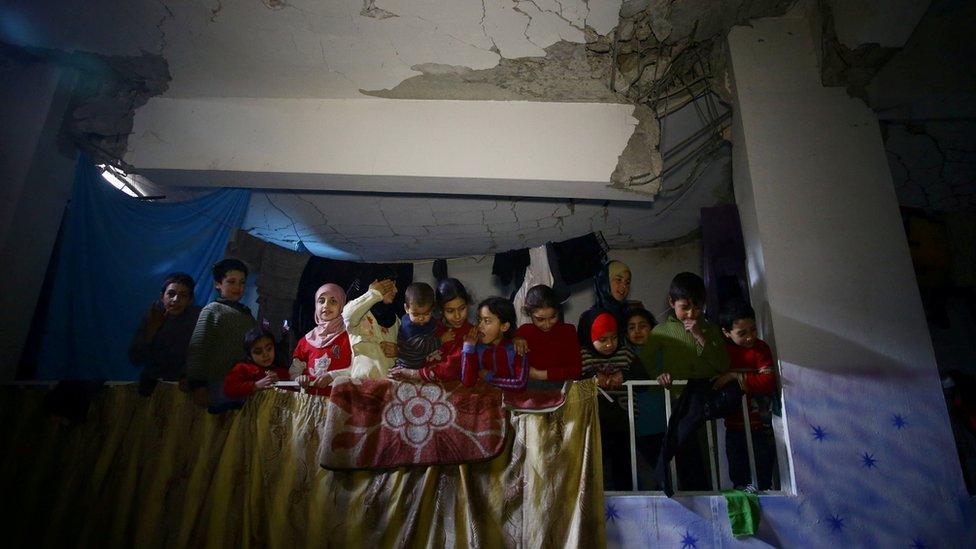
Basement shelters in the besieged town of Douma are reportedly overcrowded
Briefing the Security Council on Monday afternoon, UN Secretary General Antonio Guterres said fighting had continued across Syria despite the resolution, even intensifying in the Eastern Ghouta and claiming hundreds of civilian lives.
"No sieges have been lifted," he said. "To our knowledge, not one critically sick or wounded person has yet been evacuated."
Mr Guterres said the UN had offered to facilitate talks between the Syrian government, Russian officials and representatives of the three main rebel groups in the Eastern Ghouta - Jaysh al-Islam, Faylaq al-Rahman and Ahrar al-Sham.

Last week, as pro-government forces advanced steadily towards urban centres in the heart of the Eastern Ghouta, there were two meetings between Russian officials and Jaysh al-Islam on the outskirts of the enclave observed by the UN.
Mr Guterres said progress was made, including an agreement that saw the evacuation of a number of members of Hayat Tahrir al-Sham, an al-Qaeda-linked jihadist alliance that was previously known as al-Nusra Front.
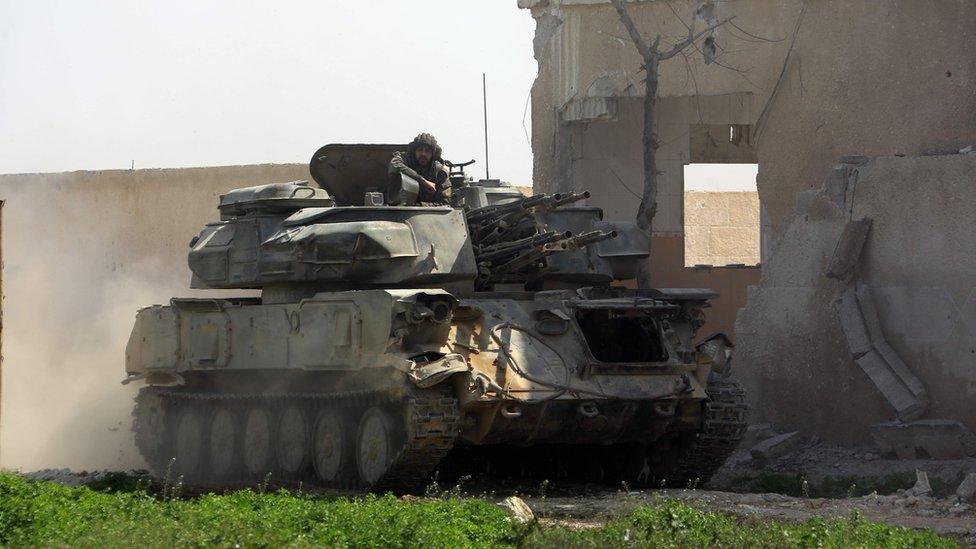
Syrian pro-government forces have made rapid gains in the Eastern Ghouta in recent days
On Saturday, Russia informed the UN that a unilateral ceasefire would begin in the northern pocket around Douma, which is controlled by Jaysh al-Islam.
There were further talks on Sunday and Monday, after which Jaysh al-Islam announced that "an agreement was reached with the Russian side through the United Nations for a humanitarian medical evacuation of the wounded for treatment outside of Eastern Ghouta".
The UN says more than 1,000 critically ill and wounded people, most of them women and children, are in urgent need of medical evacuation from the Eastern Ghouta. Seventy-seven are considered "priority cases".
Mr Guterres also expressed concern at the continued shelling of government-controlled districts of Damascus by rebels based in the Eastern Ghouta, which he said had caused dozens of deaths and injuries since 18 February.
Police told the official Sana news agency that two civilians had been killed by rebel shellfire on Monday.
The Syrian army meanwhile announced that it had regained control of a village and farms on the outskirts of the town of Jisreen - in the southern pocket controlled by Faylaq al-Rahman - as part of the operation to stop the shelling and eradicate al-Nusra Front "and its affiliated groups" in the Eastern Ghouta.
- Published4 March 2018
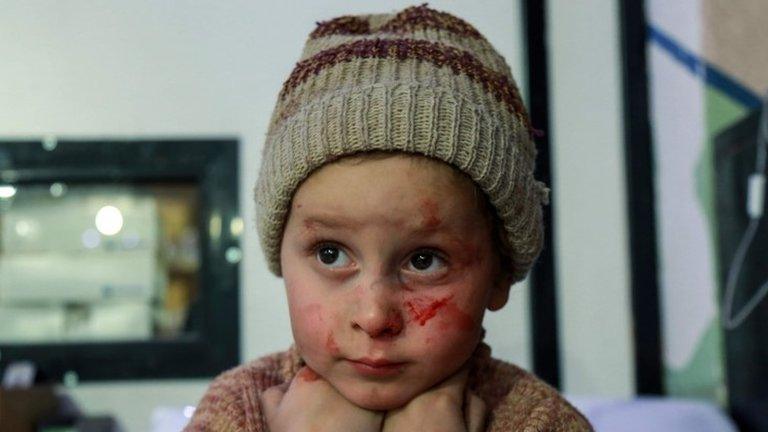
- Published29 March 2018
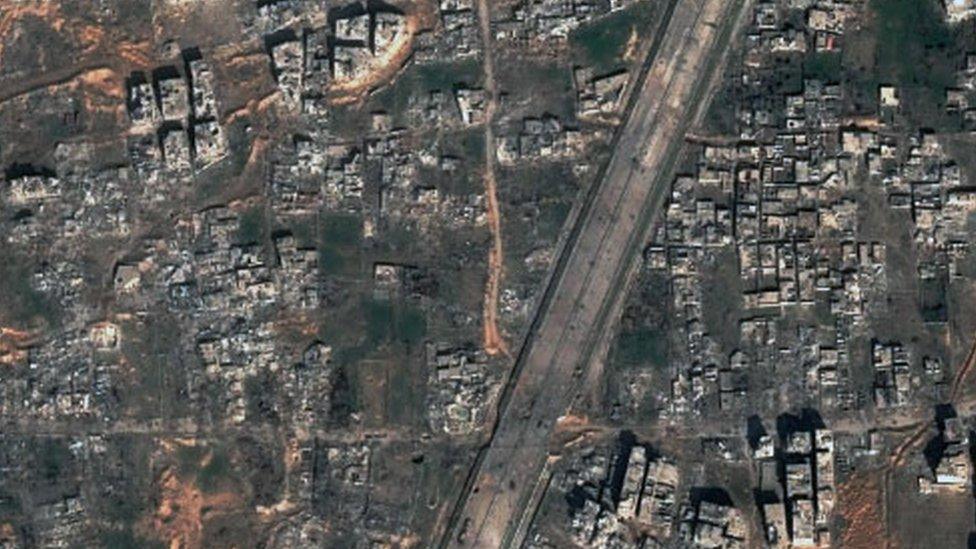
- Published2 May 2023

- Published23 February 2018
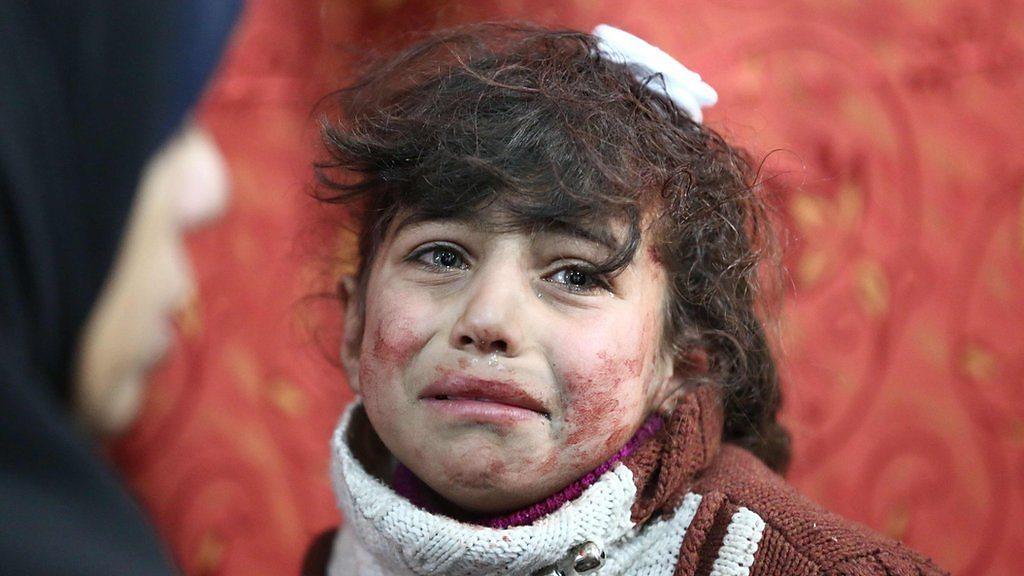
- Published22 February 2018
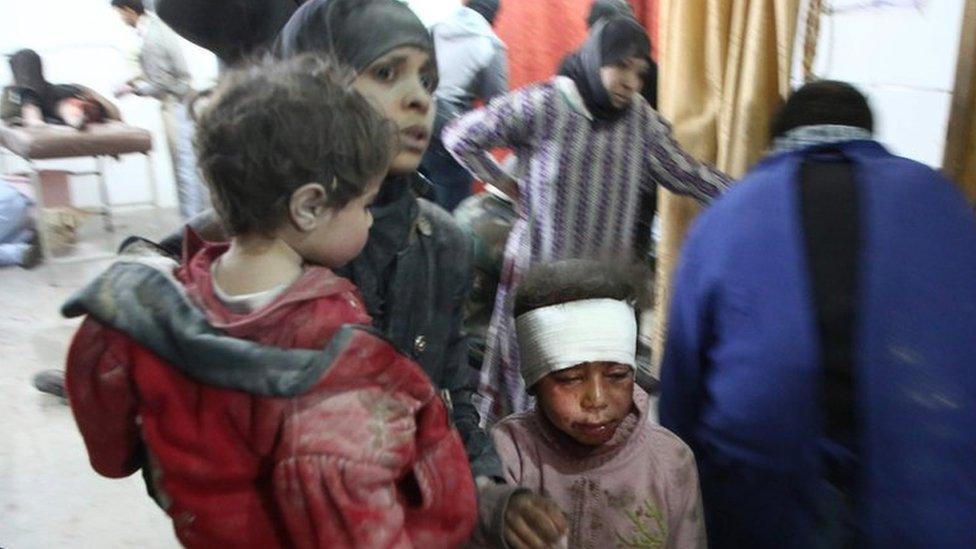
- Published24 January 2018
